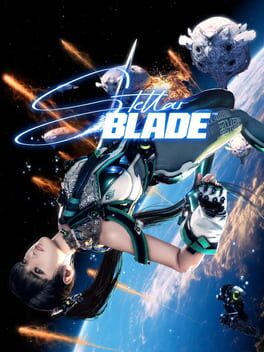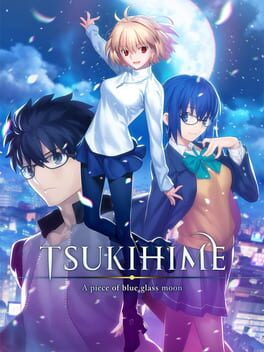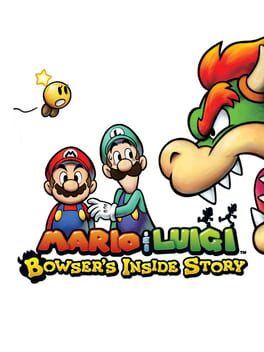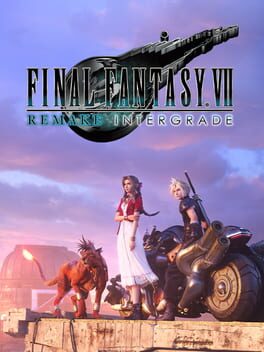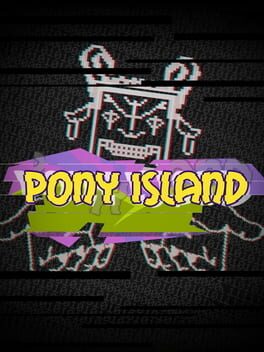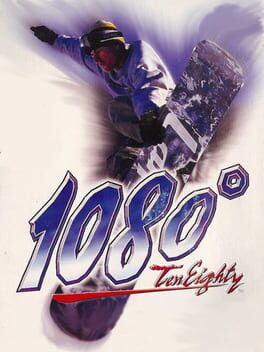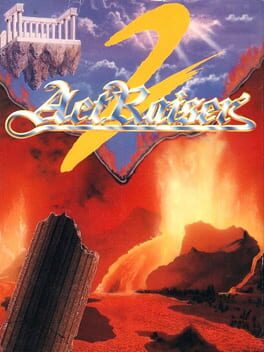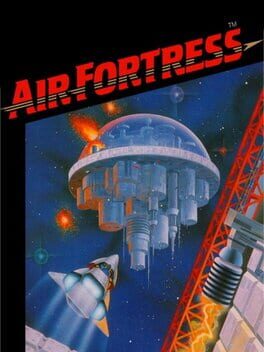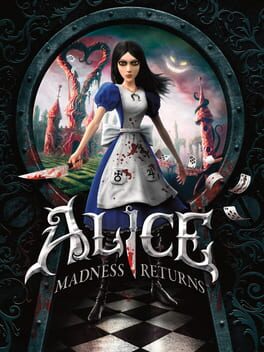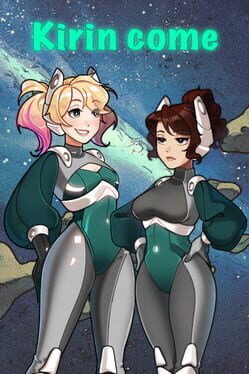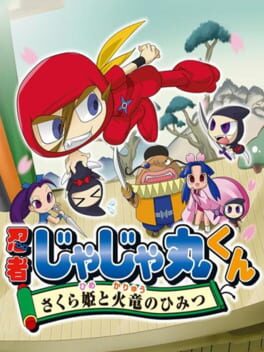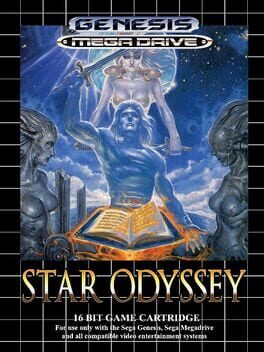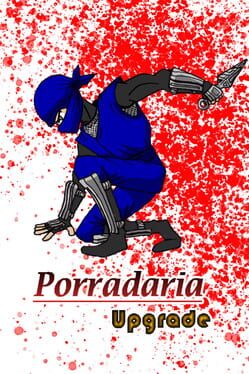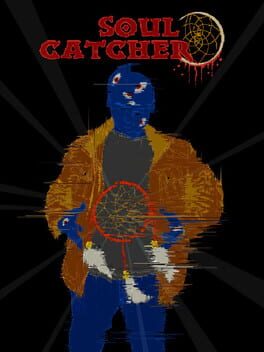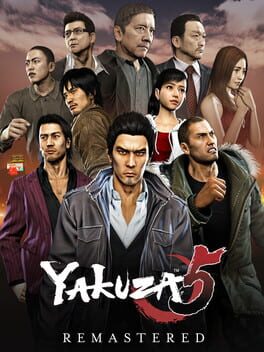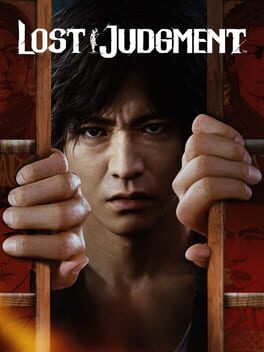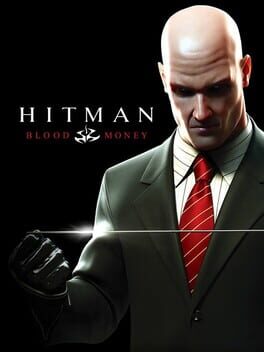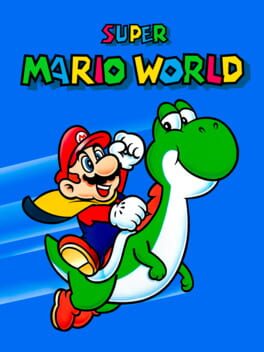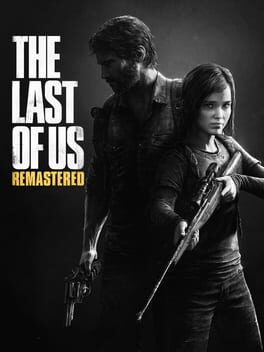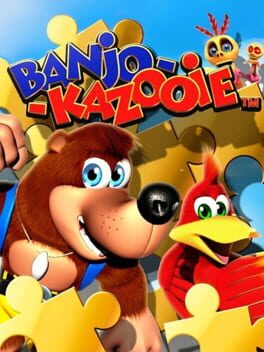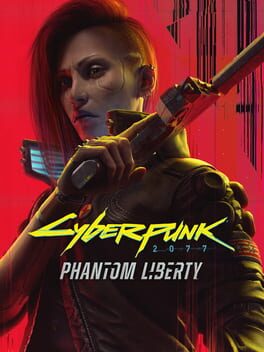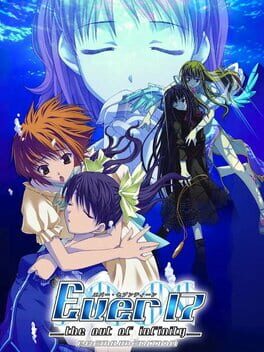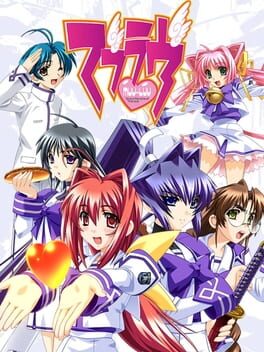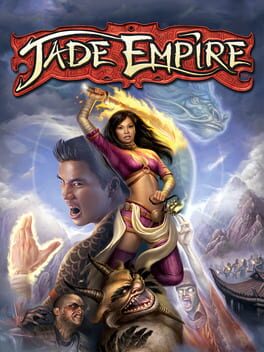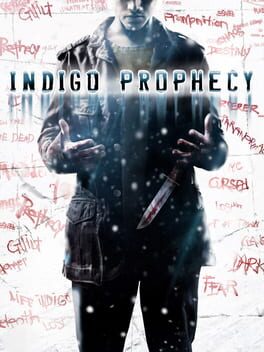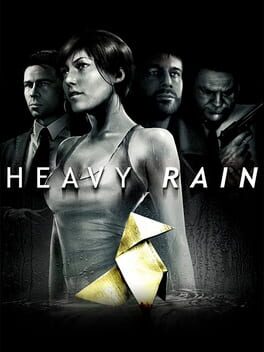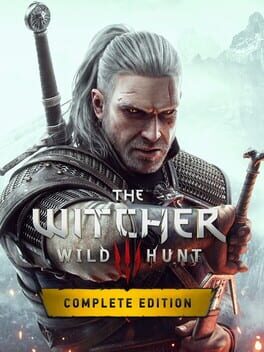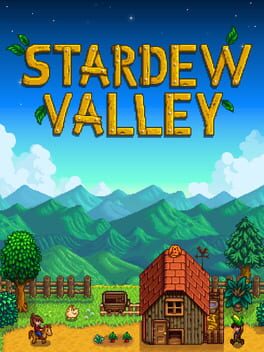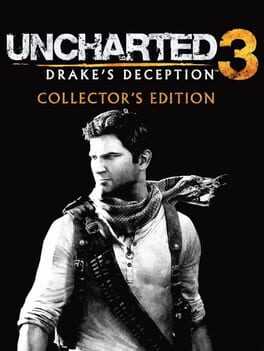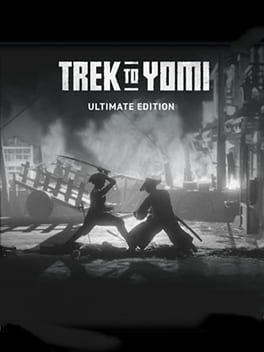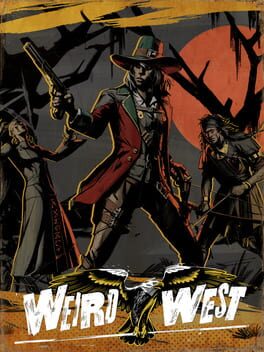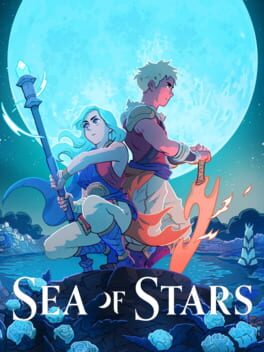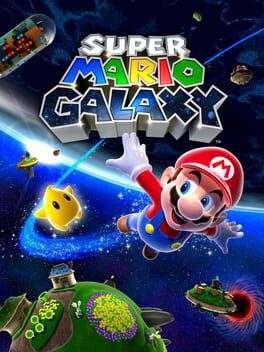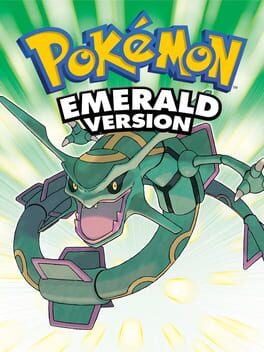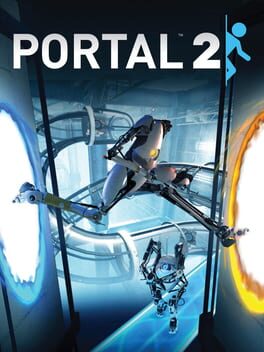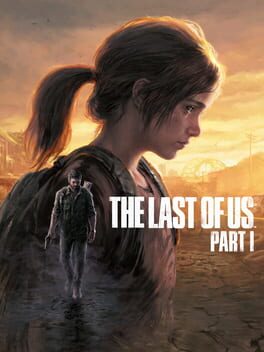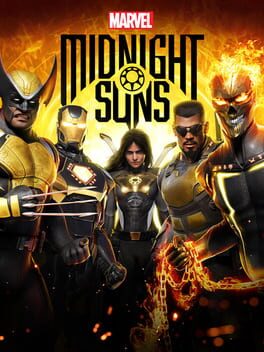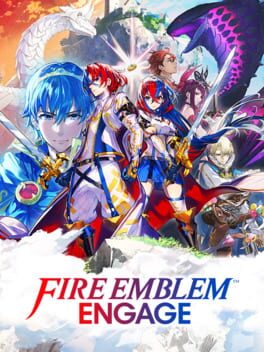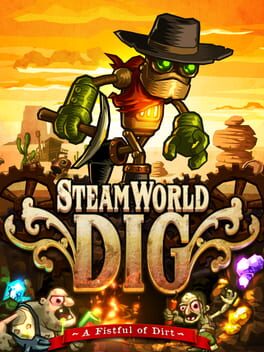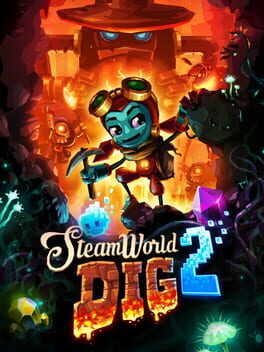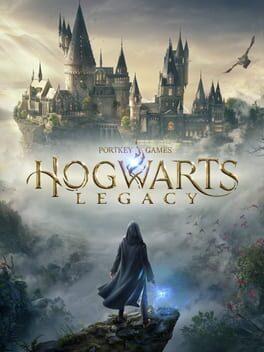Moogetsuu
412 reviews liked by Moogetsuu
Stellar Blade
2024
An utterly staggering experience from top to bottom that is equal parts unnerving as it is comforting, erratic as it is deliberate, and heart-warming as it is emotionally devastating, Tsukihime -A piece of blue glass moon- (2021) is a retelling of TYPE-MOONs debut doujin visual novel Tsukihime (2000) that sincerely strives to retain its thematic core and identity, redefined by sweeping scenario changes, new characters and a high production value but ultimately a more experienced Kinoko Nasu through his ambition to tell the story on a grander scale. With this, Tsukihime Remake adapts the entire Near Side segment of the original that only accounts for 2/5 of the routes, which may be surprising but results in a much more dilated and refined experience, one that successfully fills its extended playtime with additional, expanded and rewritten content while also picking up where its predecessor often stumbled, removing its gratuitous adult scenes along with a more tactful handling of its sexual themes. Thoroughly entertaining due to its hyperactive narrative, exciting scenes that utilise its presentation to the fullest, and strong emotional payoffs that all left me craving more by the end.
Right out of the gate one of the most defining aspects of Tsukihime Remake is its remarkable presentation, which oozes quality as every facet of the writing is complemented by both stunning art and animation. For a medium often viewed negatively by those who believe it to be static and unengaging, the remake really pushes the envelope of what it can offer through its commitment to infusing movement into every scene, very rarely sitting still, often utilising varying camera angles between dialogue or slow panning across backgrounds, while additionally shifting through the plentiful amount of character sprites featuring multiple pose variations that greatly enhance character expression and manage to capture a sense of motion unlike most visual novels I’ve played. Perspective is another avenue in which it excels; it’s a genre staple for visual novels to have their characters all lined up together on screen, but instead Tsukihime remake fervently dedicates itself to consistently depicting character distances and positions scene by scene, mapping out their locations in every environment. All this leads to a visually engaging and dynamic experience that never feels overwhelming, as the remake has a confident grasp on how exactly to make the most of its visuals in each scene.
“It’s showtime, vampire.”
Where I think the presentation is at its pinnacle though is during the thrilling action sequences. I swear only TYPE-MOON can captivate me to the point where I’m filled with such childlike glee, twiddling my thumbs on the edge of my seat like a kid again, completely awe-struck with my blood pumping trying to anticipate what happens next as an ominous chanting choir kicks in coupled with Shiki’s hard-edge internal monologuing going off at the same time. I don't agree with the sentiment that the visuals at any point make the game feel like an "anime" as I believe that comparison is neglectful to the importance of the text, the remake manages to strike a solid balance between maintaining the writings importance while featuring fights that bombard you with special effects and animations that ebb and flow seamlessly into the next. The visuals never steal primacy away from the writing, supplementing it to the highest degree which I think is a feat in and of itself. Going further, the sound effects are sharp, the visuals are weighty and unflinching which don't shy away from the innate brutality of Tsukihime, and every action scene is crafted with such a meticulous hand to make them as unpredictable and intense as possible - simply magical.
This more action-oriented approach to an already fantastical narrative manages to remain grounded and down-to-earth in no small part due to the revamped framework it takes place in, Souya city. The dense, quaint atmosphere of Misaki is exchanged in favour of an imposing, bustling and modern Souya city as the narrative scope of Tsukihime is ramped up to go beyond just interpersonal conflicts by now seeping into society as well. Veils of both intrigue and mystery are still blanketed across the setting, an ongoing serial killer case along with talk of suspicious locations in the city churned out by the society rumour mill and yet these happenings don't even begin to shake the daily routines of anybody… life simply has to go on. These everyday moments remain so significant, and where Tsukihime covers a lot of ground with its themes on a smaller but more personal and poignant scale, often through intimate spoken interactions and clashing of worldviews between two closely-knit characters in passive settings such as the local food court or park. Comforting moments like these highlight the fleeting yet precious nature of the story’s two-week timeframe, as to many of its cast they will hold onto these memories forever, memories that are given meaning through the realisation that everything must eventually come to an end.
“Really? I like what-ifs. You might not know where you’re gonna end up, but in the moment you always feel like there's some kind of salvation out there.”
One unambiguous strength of dilating the original is the breadth of characterisation that comes with it; every single character is an infinitely more compelling agent of the story that strengthens not just their individual or interconnected arcs but also the themes of the game, while also staying largely true to their origins - with some slight alterations.
Arcueid remains an absolute joy to watch anytime her vibrant presence is on the screen, such a captivating character who brings life to every single scene she is in, aided by an outstanding performance from her voice actor who perfectly captures her essence. Her character design and behaviour now align more closely with someone of Shiki's age, resulting in a stronger blend of maturity and youth in her character coupled with added depth to her and Shiki’s relationship. Although her route remains very faithful to the original, keeping its identity and greatly enhancing its impact by drawing out scenes and dialogue, it comes at the cost of suffering identically to the original by regularly falling into repetitious heavy-exposition scenes. Shiki is not privy to the world he has unexpectedly been thrown into and the scenario doesn't lend him any agency to uncover its truths on his own, everything is told to him through the actually knowledgeable characters. This reliance on exposition leads to her route occasionally feeling very rhythmic at times, as it also sometimes retreads prior knowledge too, however despite this flaw, and believing that this is where the remake is at its lowest, Arcueid’s charm and chemistry with Shiki shines through brightly, compensating heavily for me not just during these narrative shortcomings but acting as a major strength throughout the entire route. Overall, thanks to a more evocative prose and an improvement in every other element of Arcueid’s story, I still left it with several scenes shattering my heart into pieces.
“I was taught that ‘atonement’ isn’t a destination, but a way of being that is born out of the journey itself. A heart that can punish itself without being forced to by others.”
It's not controversial to say that Ciel's original route was mediocre, failing to differentiate itself sufficiently from its Near Side counterpart and inadvertently placing Arcueid on a higher pedestal due to Ciel’s own route being written in a way that worked against her. In a miraculous turnaround, Ciel’s remake route delivers on a liberal reconstruction that taps into the latent potential its predecessor held, introducing a plethora of changes that are shaped around the retained core ideas of her route, redefining how her story is expressed while maintaining thematic coherence. The result? A complete slam dunk. Nothing short of hyperactive, her route is densely packed, juggling 4 unique plot lines simultaneously as the remake’s willingness to narrate the story from outside Shiki’s perspective really shines here, helping to layer the narrative and provide clarity for when these storylines begin to converge. As a character Ciel is both deep and multi-faceted as the narrative puts her under the magnifying glass and deeply explores every aspect of her character to such a profound level; her connection with Shiki is also the foundation upon which the games most emotional moments are built. The natural evolution of their relationship is very touching, Ciel acts as an anchor to Shiki, the support system he desperately requires, so when their dynamic unravels to the point where it's mirrored, their arcs both reach their crux, culminating in a succession of incredibly moving scenes and dialogue. Aside from just being a very well-written and compelling duo, they are both put forward as the centrepieces for the route's display of its main theme of sin and atonement.
An important distinction to make when discussing Ciel’s route is the 2 different endings it can branch into. Arcueid is given the short end of the stick, her route is not only shorter than Ciel’s but it also only has a singular possible ending compared to Ciel’s normal and true end. Having 2 endings may be concerning for returning fans, since the normal/good ends of the original were very hit or miss, often contradicting the messaging of the true ends by undoing any semblance of tragedy that befell the cast, but in the case of the remake, it separates itself from this prior misstep as the endings are worlds apart. In my opinion, Ciel’s normal ending is the crowning point of not just the remake but Tsukihime as a whole, it’s perfect and I wouldn’t even want to give an idea of what transpires in it. The true end is where things begin to derail as I can’t help but think Nasu got overly ambitious, it's so foreign from anything seen before in Tsukihime, willingly removing itself from many of the games established strengths to try and deliver on an unforgettable spectacle that ends up falling just short. I believe it serves as a solid conclusion for the entire visual novel, but evaluating it in isolation as an end to Ciel’s story, it simply overstays its welcome and lacks thematic substance to it unlike the others.
Most of the new characters are far better integrated into Ciel’s route, with a handful of them taking on major roles that serve to highlight the expanded scope of the story in tandem with its raised stakes, as characters constantly teeter on the borderline between life and death. Going into the remake with the expectation that the new is going to be the brunt of the story will likely leave you disappointed, as while the remake does succeed in adding texture to some of its new side characters, the original cast remains central. Limited character development of some of the new cast stems from the fact that this is a partial release, with certain characters barely having any semblance of characterisation; it's clear a lot is being withheld for the Far Side.
Speaking of the Far Side, the setup for it looks like it's going to be a sweep for Tsukihime -The other side of red garden- (TBD), although this was inevitable since it features the Kohaku route. The foreshadowing runs much deeper, for both old fans and new fans to pick up on, as certain details that the original Near Side clued us in on are omitted or explored differently. Bad ends are a prime example of this, used to great effect to pose interesting scenarios, but also cleverly serve as vital scenes for information that hints at what’s to come. Much of the foreshadowing for the new can be extremely subtle, with certain things I wouldn’t have picked up in a million years because of how skilfully embedded they are. Either way, the fascinating hints and intriguing theories that have emerged from the remake, in conjunction with the vast improvements of the entire Near Side, all point to very promising ideas for the Red Garden.
“No matter how much despair I feel, I’m content simply existing. This is not something that needs to be taught. Just being here like this is enough to give human existence meaning.”
For all the brutality, all the flashy fight scenes, the jokes and quips, the love and tragedy, the growth and self-discovery, Tsukihime is a deeply human story that masks itself behind these ideas, using them to convey its simple but emotive message: despite life's inherently fragile nature, and how meaningless everything might seem - just being here is enough to give existence purpose. The dialect between Arcueid and Shiki at the school, as a soothing canopy of gold paints over the vast canvas of the sky, is one of my favourite scenes in the entire visual novel, as it’s where Tsukihime lays out its philosophy through Shiki. It's here where we understand that Shiki is fundamentally an absurdist, someone who acknowledges the inherent meaninglessness of life and yet revolts against the irresolvable emptiness that often comes from such a realisation, who is able to wake up every day with a positive outlook, content at just being alive, despite his fragile existence, knowing that this is the only form of life he can live, and that if he wants something it can only be seized in this form. Just as he revolts, he lives with passion through wholly embracing the present, not chasing eternity or the divine, nor clinging onto nostalgia and the past. To say life is meaningless is from the perspective of the universe, and as such does not disqualify us from finding our own subjective meaning for certain things in life, as seen by Shiki as he still pursues experiences, fully alive to the present, taking an active role in the narrative by finding fun and purpose in the journey without focusing solely on the destination.
I find Shiki to be a very underappreciated and unique protagonist, he doesn’t go through scathing character development that turns his worldview upside down, rather he maintains a lot of his core beliefs from start to finish, for example how he frequently finds himself returning to the words of Aoko all those many years ago. He’s positioned as the catalyst for the heroines of each route to undergo their arcs, and see them through. The aforementioned conversation he and Arcueid share is beautiful in how it establishes so much about his and her character, and the music that encompasses it is equally as powerful. As someone who often finds themselves stuck in musings about their worth and existence, Shiki’s easy-going attitude and philosophy really spoke to me, however cliché some may believe it to be, but I don’t mind as there is not a stronger or more potent message than one that affirms life.
Ultimately, Tsukihime -A piece of blue glass moon- for all of its flaws was an experience that really landed with me. It’s a remake that is true to its predecessor, maintaining respect for it while understanding things change with the times and making the necessary adjustments without ever straying from its path to remain faithful, and by tapping into the underused potential of the Near Side, it brings missing life to it that also helps to separate it more from the Far Side. Everything just resonated with me so much and I haven’t been able to get Tsukihime out of my head since finishing it.
Right out of the gate one of the most defining aspects of Tsukihime Remake is its remarkable presentation, which oozes quality as every facet of the writing is complemented by both stunning art and animation. For a medium often viewed negatively by those who believe it to be static and unengaging, the remake really pushes the envelope of what it can offer through its commitment to infusing movement into every scene, very rarely sitting still, often utilising varying camera angles between dialogue or slow panning across backgrounds, while additionally shifting through the plentiful amount of character sprites featuring multiple pose variations that greatly enhance character expression and manage to capture a sense of motion unlike most visual novels I’ve played. Perspective is another avenue in which it excels; it’s a genre staple for visual novels to have their characters all lined up together on screen, but instead Tsukihime remake fervently dedicates itself to consistently depicting character distances and positions scene by scene, mapping out their locations in every environment. All this leads to a visually engaging and dynamic experience that never feels overwhelming, as the remake has a confident grasp on how exactly to make the most of its visuals in each scene.
“It’s showtime, vampire.”
Where I think the presentation is at its pinnacle though is during the thrilling action sequences. I swear only TYPE-MOON can captivate me to the point where I’m filled with such childlike glee, twiddling my thumbs on the edge of my seat like a kid again, completely awe-struck with my blood pumping trying to anticipate what happens next as an ominous chanting choir kicks in coupled with Shiki’s hard-edge internal monologuing going off at the same time. I don't agree with the sentiment that the visuals at any point make the game feel like an "anime" as I believe that comparison is neglectful to the importance of the text, the remake manages to strike a solid balance between maintaining the writings importance while featuring fights that bombard you with special effects and animations that ebb and flow seamlessly into the next. The visuals never steal primacy away from the writing, supplementing it to the highest degree which I think is a feat in and of itself. Going further, the sound effects are sharp, the visuals are weighty and unflinching which don't shy away from the innate brutality of Tsukihime, and every action scene is crafted with such a meticulous hand to make them as unpredictable and intense as possible - simply magical.
This more action-oriented approach to an already fantastical narrative manages to remain grounded and down-to-earth in no small part due to the revamped framework it takes place in, Souya city. The dense, quaint atmosphere of Misaki is exchanged in favour of an imposing, bustling and modern Souya city as the narrative scope of Tsukihime is ramped up to go beyond just interpersonal conflicts by now seeping into society as well. Veils of both intrigue and mystery are still blanketed across the setting, an ongoing serial killer case along with talk of suspicious locations in the city churned out by the society rumour mill and yet these happenings don't even begin to shake the daily routines of anybody… life simply has to go on. These everyday moments remain so significant, and where Tsukihime covers a lot of ground with its themes on a smaller but more personal and poignant scale, often through intimate spoken interactions and clashing of worldviews between two closely-knit characters in passive settings such as the local food court or park. Comforting moments like these highlight the fleeting yet precious nature of the story’s two-week timeframe, as to many of its cast they will hold onto these memories forever, memories that are given meaning through the realisation that everything must eventually come to an end.
“Really? I like what-ifs. You might not know where you’re gonna end up, but in the moment you always feel like there's some kind of salvation out there.”
One unambiguous strength of dilating the original is the breadth of characterisation that comes with it; every single character is an infinitely more compelling agent of the story that strengthens not just their individual or interconnected arcs but also the themes of the game, while also staying largely true to their origins - with some slight alterations.
Arcueid remains an absolute joy to watch anytime her vibrant presence is on the screen, such a captivating character who brings life to every single scene she is in, aided by an outstanding performance from her voice actor who perfectly captures her essence. Her character design and behaviour now align more closely with someone of Shiki's age, resulting in a stronger blend of maturity and youth in her character coupled with added depth to her and Shiki’s relationship. Although her route remains very faithful to the original, keeping its identity and greatly enhancing its impact by drawing out scenes and dialogue, it comes at the cost of suffering identically to the original by regularly falling into repetitious heavy-exposition scenes. Shiki is not privy to the world he has unexpectedly been thrown into and the scenario doesn't lend him any agency to uncover its truths on his own, everything is told to him through the actually knowledgeable characters. This reliance on exposition leads to her route occasionally feeling very rhythmic at times, as it also sometimes retreads prior knowledge too, however despite this flaw, and believing that this is where the remake is at its lowest, Arcueid’s charm and chemistry with Shiki shines through brightly, compensating heavily for me not just during these narrative shortcomings but acting as a major strength throughout the entire route. Overall, thanks to a more evocative prose and an improvement in every other element of Arcueid’s story, I still left it with several scenes shattering my heart into pieces.
“I was taught that ‘atonement’ isn’t a destination, but a way of being that is born out of the journey itself. A heart that can punish itself without being forced to by others.”
It's not controversial to say that Ciel's original route was mediocre, failing to differentiate itself sufficiently from its Near Side counterpart and inadvertently placing Arcueid on a higher pedestal due to Ciel’s own route being written in a way that worked against her. In a miraculous turnaround, Ciel’s remake route delivers on a liberal reconstruction that taps into the latent potential its predecessor held, introducing a plethora of changes that are shaped around the retained core ideas of her route, redefining how her story is expressed while maintaining thematic coherence. The result? A complete slam dunk. Nothing short of hyperactive, her route is densely packed, juggling 4 unique plot lines simultaneously as the remake’s willingness to narrate the story from outside Shiki’s perspective really shines here, helping to layer the narrative and provide clarity for when these storylines begin to converge. As a character Ciel is both deep and multi-faceted as the narrative puts her under the magnifying glass and deeply explores every aspect of her character to such a profound level; her connection with Shiki is also the foundation upon which the games most emotional moments are built. The natural evolution of their relationship is very touching, Ciel acts as an anchor to Shiki, the support system he desperately requires, so when their dynamic unravels to the point where it's mirrored, their arcs both reach their crux, culminating in a succession of incredibly moving scenes and dialogue. Aside from just being a very well-written and compelling duo, they are both put forward as the centrepieces for the route's display of its main theme of sin and atonement.
An important distinction to make when discussing Ciel’s route is the 2 different endings it can branch into. Arcueid is given the short end of the stick, her route is not only shorter than Ciel’s but it also only has a singular possible ending compared to Ciel’s normal and true end. Having 2 endings may be concerning for returning fans, since the normal/good ends of the original were very hit or miss, often contradicting the messaging of the true ends by undoing any semblance of tragedy that befell the cast, but in the case of the remake, it separates itself from this prior misstep as the endings are worlds apart. In my opinion, Ciel’s normal ending is the crowning point of not just the remake but Tsukihime as a whole, it’s perfect and I wouldn’t even want to give an idea of what transpires in it. The true end is where things begin to derail as I can’t help but think Nasu got overly ambitious, it's so foreign from anything seen before in Tsukihime, willingly removing itself from many of the games established strengths to try and deliver on an unforgettable spectacle that ends up falling just short. I believe it serves as a solid conclusion for the entire visual novel, but evaluating it in isolation as an end to Ciel’s story, it simply overstays its welcome and lacks thematic substance to it unlike the others.
Most of the new characters are far better integrated into Ciel’s route, with a handful of them taking on major roles that serve to highlight the expanded scope of the story in tandem with its raised stakes, as characters constantly teeter on the borderline between life and death. Going into the remake with the expectation that the new is going to be the brunt of the story will likely leave you disappointed, as while the remake does succeed in adding texture to some of its new side characters, the original cast remains central. Limited character development of some of the new cast stems from the fact that this is a partial release, with certain characters barely having any semblance of characterisation; it's clear a lot is being withheld for the Far Side.
Speaking of the Far Side, the setup for it looks like it's going to be a sweep for Tsukihime -The other side of red garden- (TBD), although this was inevitable since it features the Kohaku route. The foreshadowing runs much deeper, for both old fans and new fans to pick up on, as certain details that the original Near Side clued us in on are omitted or explored differently. Bad ends are a prime example of this, used to great effect to pose interesting scenarios, but also cleverly serve as vital scenes for information that hints at what’s to come. Much of the foreshadowing for the new can be extremely subtle, with certain things I wouldn’t have picked up in a million years because of how skilfully embedded they are. Either way, the fascinating hints and intriguing theories that have emerged from the remake, in conjunction with the vast improvements of the entire Near Side, all point to very promising ideas for the Red Garden.
“No matter how much despair I feel, I’m content simply existing. This is not something that needs to be taught. Just being here like this is enough to give human existence meaning.”
For all the brutality, all the flashy fight scenes, the jokes and quips, the love and tragedy, the growth and self-discovery, Tsukihime is a deeply human story that masks itself behind these ideas, using them to convey its simple but emotive message: despite life's inherently fragile nature, and how meaningless everything might seem - just being here is enough to give existence purpose. The dialect between Arcueid and Shiki at the school, as a soothing canopy of gold paints over the vast canvas of the sky, is one of my favourite scenes in the entire visual novel, as it’s where Tsukihime lays out its philosophy through Shiki. It's here where we understand that Shiki is fundamentally an absurdist, someone who acknowledges the inherent meaninglessness of life and yet revolts against the irresolvable emptiness that often comes from such a realisation, who is able to wake up every day with a positive outlook, content at just being alive, despite his fragile existence, knowing that this is the only form of life he can live, and that if he wants something it can only be seized in this form. Just as he revolts, he lives with passion through wholly embracing the present, not chasing eternity or the divine, nor clinging onto nostalgia and the past. To say life is meaningless is from the perspective of the universe, and as such does not disqualify us from finding our own subjective meaning for certain things in life, as seen by Shiki as he still pursues experiences, fully alive to the present, taking an active role in the narrative by finding fun and purpose in the journey without focusing solely on the destination.
I find Shiki to be a very underappreciated and unique protagonist, he doesn’t go through scathing character development that turns his worldview upside down, rather he maintains a lot of his core beliefs from start to finish, for example how he frequently finds himself returning to the words of Aoko all those many years ago. He’s positioned as the catalyst for the heroines of each route to undergo their arcs, and see them through. The aforementioned conversation he and Arcueid share is beautiful in how it establishes so much about his and her character, and the music that encompasses it is equally as powerful. As someone who often finds themselves stuck in musings about their worth and existence, Shiki’s easy-going attitude and philosophy really spoke to me, however cliché some may believe it to be, but I don’t mind as there is not a stronger or more potent message than one that affirms life.
Ultimately, Tsukihime -A piece of blue glass moon- for all of its flaws was an experience that really landed with me. It’s a remake that is true to its predecessor, maintaining respect for it while understanding things change with the times and making the necessary adjustments without ever straying from its path to remain faithful, and by tapping into the underused potential of the Near Side, it brings missing life to it that also helps to separate it more from the Far Side. Everything just resonated with me so much and I haven’t been able to get Tsukihime out of my head since finishing it.
Stellar Blade
2024
I’ve been wanting to play this game for a long time and it was well worth the wait. The combat is better than ever and I’m glad they brought the SP system back from Superstar Saga. Controlling Bowser in battle is fun and I like how he is the x and y buttons while Mario and Luigi are A and B.
The story is funny and I’m glad that Fawful is back. Being inside Bowser and dealing with his health issues is funny. I can see why this is regarded as the best Mario and Luigi game. Highly recommended!
The story is funny and I’m glad that Fawful is back. Being inside Bowser and dealing with his health issues is funny. I can see why this is regarded as the best Mario and Luigi game. Highly recommended!
I’ll start this review by saying this is my third playthrough of Final Fantasy 7 Remake. It has gotten better each time I’ve played it; I’ve noticed more, had more context going into it this time having played Crisis Core Reunion, and it made me love it that much more. It differs from the original FF7, but more often than not, it’s a faithful rendition of Midgar and all its sectors we get to visit.
We start with Cloud, the merc, and his struggles within himself. Sephiroth feels like a horror villain in each cutscene he appears in. Barret, the loud, outspoken, huge man who loves his daughter and the planet. Tifa, who is simply a badass, and Aerith, the local flower girl forever running from the big bad, Shinra. These characters have evolved much from what they were in 1997. Hell, they even made me care about Biggs, Wedge, and Jessie.
The villains are great. The Turks, if we truly want to call them that, are agents who are simply following orders. President Shinra and his lieutenants, with Hojo being the worst of those, and the best-dressed man in the game, Rufus Shinra. Each time we see these characters in the game, they shock us with their lies, deceit, and propaganda. Square did a fantastic job of making the player despise them.
The combat is as satisfying as ever. The ATB, along with one of the best systems in gaming, the materia system. The combinations are endless, and seamlessly switching between characters has never felt so good. If I had a minor complaint about this game, it would be the unplayable Red XIII, albeit I understand the reasons why, and the motorcycle missions. They were too long, in my opinion.
Nobuo Uematsu outdid himself with this OST. Hollow Skies, Aerith’s Theme, and the Airbuster Theme. I could go on and on. Uematsu, along with Shimomura, are the best 1-2 punch in video game music.
The Intermission DLC is a nice bridge between Remake and its sequel. Yuffie is very anime, but she’s cute. It’s a good taste of different characters to come.
With all that said, Final Fantasy 7 Remake is easily one of my top 5 games of all time. I didn’t think they could pull it off; not only did they, it exceeded my expectations.
We start with Cloud, the merc, and his struggles within himself. Sephiroth feels like a horror villain in each cutscene he appears in. Barret, the loud, outspoken, huge man who loves his daughter and the planet. Tifa, who is simply a badass, and Aerith, the local flower girl forever running from the big bad, Shinra. These characters have evolved much from what they were in 1997. Hell, they even made me care about Biggs, Wedge, and Jessie.
The villains are great. The Turks, if we truly want to call them that, are agents who are simply following orders. President Shinra and his lieutenants, with Hojo being the worst of those, and the best-dressed man in the game, Rufus Shinra. Each time we see these characters in the game, they shock us with their lies, deceit, and propaganda. Square did a fantastic job of making the player despise them.
The combat is as satisfying as ever. The ATB, along with one of the best systems in gaming, the materia system. The combinations are endless, and seamlessly switching between characters has never felt so good. If I had a minor complaint about this game, it would be the unplayable Red XIII, albeit I understand the reasons why, and the motorcycle missions. They were too long, in my opinion.
Nobuo Uematsu outdid himself with this OST. Hollow Skies, Aerith’s Theme, and the Airbuster Theme. I could go on and on. Uematsu, along with Shimomura, are the best 1-2 punch in video game music.
The Intermission DLC is a nice bridge between Remake and its sequel. Yuffie is very anime, but she’s cute. It’s a good taste of different characters to come.
With all that said, Final Fantasy 7 Remake is easily one of my top 5 games of all time. I didn’t think they could pull it off; not only did they, it exceeded my expectations.
Yeehaw! What a great game this was. It is the ultimate cowboy simulator. The story and presentation are off the charts. The graphics and world look gorgeous and the map is fun to explore.
The biggest surprise to me was how much I liked the characters. I grew to like pretty much all the members which were part of Dutch's family. There were a few exceptions which I won't name because of spoilers. All the characters get time to grow and you get to do missions with all of them which helps show their personalities. Arthur as the main character is great and I love how you can shape what kind of cowboy he is. His voice actor does an amazing job.
The story was well done and has many twists and turns that keep you engaged the whole time. I really like all the different places you end up and the world itself has a story to tell if you want to explore it. The soundtrack also does a great job of setting the mood at the perfect times.
The gameplay is exactly what you expect. This is a cowboy simulator through and through and it plays like one. I did feel like I was fighting the controls most of the game. I tried with a controller but ultimately settled on keyboard and mouse since I like that for aiming. I got used to the controls but they were wonky at times.
It's great to travel around and the cinematic camera makes it even better/easier. I do wish fast travel was a little more fleshed out since it does take a while to get from place to place, but it's fun to explore and find random people that need help or want to rob you.
Overall it's a spectacular game and I can't wait to play more of them!
The biggest surprise to me was how much I liked the characters. I grew to like pretty much all the members which were part of Dutch's family. There were a few exceptions which I won't name because of spoilers. All the characters get time to grow and you get to do missions with all of them which helps show their personalities. Arthur as the main character is great and I love how you can shape what kind of cowboy he is. His voice actor does an amazing job.
The story was well done and has many twists and turns that keep you engaged the whole time. I really like all the different places you end up and the world itself has a story to tell if you want to explore it. The soundtrack also does a great job of setting the mood at the perfect times.
The gameplay is exactly what you expect. This is a cowboy simulator through and through and it plays like one. I did feel like I was fighting the controls most of the game. I tried with a controller but ultimately settled on keyboard and mouse since I like that for aiming. I got used to the controls but they were wonky at times.
It's great to travel around and the cinematic camera makes it even better/easier. I do wish fast travel was a little more fleshed out since it does take a while to get from place to place, but it's fun to explore and find random people that need help or want to rob you.
Overall it's a spectacular game and I can't wait to play more of them!
After sitting on this game for over a month now, my opinion on this game has only lessened as I ruminate over and over about the 60+ hours I spent with the game.
Of those 60-ish hours, I would say around 10-15 of those hours were moments where narrative was actually occurring, and it was fucking good. When plot was happening, when it was channelling the game it's meant to be a retelling of, the game is fantastic. Cutscene direction is really strong, voice acting is great and it has some of the best lip-sync i've seen in a Japanese developed title.
It's the other 40-50 hours where the game fumbles, and where my mind wanders to the most when thinking about this game. Starting off the game, I quite enjoyed the first area, it was nicely designed and it looked great and it had good environment diversity. I felt compelled to complete everything in the area's activity checklist. However, the more areas that were introduced - the more burned I became completing the same mindless activities, and the areas became more and more tedious to traverse. I was fully ready to stop doing the open world activities by the time I was hit with the 1-2 Punch of Gongaga and Cosmo Canyon. Two areas that had the most tedious and annoying traversal mechanics and really made getting around the map feel like a chore. When I had got to the final area I completely mainlined, feeling further emboldened by the game vomiting 15 more side quests on you.
In terms of the side activities, I do find the reception to them to be fascinating. It's very clear the game is apeing the design of other open-world titles, but it's not like it's doing this content any better. As much as the gaming public lambasts "radio tower" map clearing activities, or "lazy Ubisoft-esque" side content, this game is doing all of that? So why is it not a problem here? It's never actually been a problem, but that's a tale for another day.
What the side-content does the best is give the party more areas to shine, for every quest theres 1 party member that is actively invested in the completion of your side quest objective. It gives you a snippet of their character, a much welcomed addition. While there are moments within the side content that I found enjoyable (Queen's Blood is fantastic), I found that alot of the minigames and stuff to not be as high of a quality as I'd hoped. Alot of the minigames felt like maybe 4 people in the studio worked on them, theres not like an equal level of development time and care between them all, so alot just come off as randomly thrown together so that they can hit some kind of internal metric of having X amount of minigames. I couldn't help but think of Like A Dragon: Infinite Wealth when playing through the minigames. RGG are the masters of minigames in my opinion, and 90% of the time those minigames are there for you to be distracted with. You're able to go off on your own and on your own volition interact with the minigames. But in Rebirth, minigames are shoved down your throat left right and center to mask the fact that there isn't really a lot happening in this section of Final Fantasy 7's narrative. I fully believe that a lot of the minigames should not be integrated within the story, even for areas where it's intentionally lax and they want you to "have fun". That was a problem I actually had with Infinite Wealth, it constantly dragged you away from the story in order to interact with the big minigames it had implemented. They should have all been relegated to the Golden Saucer.
Now, the narrative. When there was actually stuff happening I was pogging and soying. The first couple hours were great, and then there were sparce moments here and there where I had fun and then the game ended. The ending left ALOT to be desired, and I was ultimately left with more questions than answers - which was quite disappointing as I had bought the game to get those answers. I wanted to see what they were laying the groundwork for in Remake, and I still have yet to see where they are going. There are flashes where the game is showing it's hand, but it's presented so ambiguously it just made me frustrated. The final chapter of the game had it's ups and downs, and then I was presented with yet another boss fight against Sephiroth and then it was done.
I don't know what they are going to do with the third game. They can't get away with "nothing happening" in the final act clearly, so I wonder if they're going to focus on the inclusion of inane minigames that completely destroy the pacing of the narrative. I'm at the point where I believe that's probably whats going to happen. I really hope the final game knocks it out of the park, but like are we really going to end on the 5th fight with Sephiroth with One Winged Angel playing for the 14th time? I don't mind games where the primary focus is just vibing out and hanging around the characters, I just don't feel like that was marketed appropriately. Had I known this game was going to be a bit more primarily slice-of-life I would've set my expectations as such - but I understand that adapting this section of the original game was going to be a bit difficult.
Random points I never really mentioned:
- Combat is good, love it
- Pre-rendered scenes are gorgeous
- Queen's Blood is amazing
- Golden Saucer and Costa Del Sol are fucking beautiful, GS in particular I really loved just being in
- Party member AI is fucking stupid, I don't like the overreliance on Materia in order to get them to do certain actions.
- AP economy is wayyyyy too small, I finished the game and still had HP Up materia I got at the beginning of the game that still hadn't levelled up to the max
- Folio menu was ass
- Potions became useless within the first hour of play. What the fuck? I can't believe that, genuinely, probably the weirdest thing in the game. I became outleveled for a base potion within the first HOUR OF THE GAME.
- Random shit not being implemented, like why can't my chocobo jump? Would get annoyed being on a cliff and having to run allll the way down a hill path instead of just being able to jump and glide so they can have area-specific chocobo gimicks
Thats all, rant over. Very polarizing game for me.
Of those 60-ish hours, I would say around 10-15 of those hours were moments where narrative was actually occurring, and it was fucking good. When plot was happening, when it was channelling the game it's meant to be a retelling of, the game is fantastic. Cutscene direction is really strong, voice acting is great and it has some of the best lip-sync i've seen in a Japanese developed title.
It's the other 40-50 hours where the game fumbles, and where my mind wanders to the most when thinking about this game. Starting off the game, I quite enjoyed the first area, it was nicely designed and it looked great and it had good environment diversity. I felt compelled to complete everything in the area's activity checklist. However, the more areas that were introduced - the more burned I became completing the same mindless activities, and the areas became more and more tedious to traverse. I was fully ready to stop doing the open world activities by the time I was hit with the 1-2 Punch of Gongaga and Cosmo Canyon. Two areas that had the most tedious and annoying traversal mechanics and really made getting around the map feel like a chore. When I had got to the final area I completely mainlined, feeling further emboldened by the game vomiting 15 more side quests on you.
In terms of the side activities, I do find the reception to them to be fascinating. It's very clear the game is apeing the design of other open-world titles, but it's not like it's doing this content any better. As much as the gaming public lambasts "radio tower" map clearing activities, or "lazy Ubisoft-esque" side content, this game is doing all of that? So why is it not a problem here? It's never actually been a problem, but that's a tale for another day.
What the side-content does the best is give the party more areas to shine, for every quest theres 1 party member that is actively invested in the completion of your side quest objective. It gives you a snippet of their character, a much welcomed addition. While there are moments within the side content that I found enjoyable (Queen's Blood is fantastic), I found that alot of the minigames and stuff to not be as high of a quality as I'd hoped. Alot of the minigames felt like maybe 4 people in the studio worked on them, theres not like an equal level of development time and care between them all, so alot just come off as randomly thrown together so that they can hit some kind of internal metric of having X amount of minigames. I couldn't help but think of Like A Dragon: Infinite Wealth when playing through the minigames. RGG are the masters of minigames in my opinion, and 90% of the time those minigames are there for you to be distracted with. You're able to go off on your own and on your own volition interact with the minigames. But in Rebirth, minigames are shoved down your throat left right and center to mask the fact that there isn't really a lot happening in this section of Final Fantasy 7's narrative. I fully believe that a lot of the minigames should not be integrated within the story, even for areas where it's intentionally lax and they want you to "have fun". That was a problem I actually had with Infinite Wealth, it constantly dragged you away from the story in order to interact with the big minigames it had implemented. They should have all been relegated to the Golden Saucer.
Now, the narrative. When there was actually stuff happening I was pogging and soying. The first couple hours were great, and then there were sparce moments here and there where I had fun and then the game ended. The ending left ALOT to be desired, and I was ultimately left with more questions than answers - which was quite disappointing as I had bought the game to get those answers. I wanted to see what they were laying the groundwork for in Remake, and I still have yet to see where they are going. There are flashes where the game is showing it's hand, but it's presented so ambiguously it just made me frustrated. The final chapter of the game had it's ups and downs, and then I was presented with yet another boss fight against Sephiroth and then it was done.
I don't know what they are going to do with the third game. They can't get away with "nothing happening" in the final act clearly, so I wonder if they're going to focus on the inclusion of inane minigames that completely destroy the pacing of the narrative. I'm at the point where I believe that's probably whats going to happen. I really hope the final game knocks it out of the park, but like are we really going to end on the 5th fight with Sephiroth with One Winged Angel playing for the 14th time? I don't mind games where the primary focus is just vibing out and hanging around the characters, I just don't feel like that was marketed appropriately. Had I known this game was going to be a bit more primarily slice-of-life I would've set my expectations as such - but I understand that adapting this section of the original game was going to be a bit difficult.
Random points I never really mentioned:
- Combat is good, love it
- Pre-rendered scenes are gorgeous
- Queen's Blood is amazing
- Golden Saucer and Costa Del Sol are fucking beautiful, GS in particular I really loved just being in
- Party member AI is fucking stupid, I don't like the overreliance on Materia in order to get them to do certain actions.
- AP economy is wayyyyy too small, I finished the game and still had HP Up materia I got at the beginning of the game that still hadn't levelled up to the max
- Folio menu was ass
- Potions became useless within the first hour of play. What the fuck? I can't believe that, genuinely, probably the weirdest thing in the game. I became outleveled for a base potion within the first HOUR OF THE GAME.
- Random shit not being implemented, like why can't my chocobo jump? Would get annoyed being on a cliff and having to run allll the way down a hill path instead of just being able to jump and glide so they can have area-specific chocobo gimicks
Thats all, rant over. Very polarizing game for me.
Elden Ring
2022
Pony Island
2016
So after finishing Inscyprtion, and not really wanting to start anything major until Final Fantasy Rebirth comes out, I figured this would be a nice little follow up game. Something I've had on my backlog forever, and with the freshness of how fantastic Inscrpytion was in my mind, this seemed like the perfect opportunity to play this.
What followed a pretty uneven experience, but definitely something that would lay the ground work for the brilliance that would be ahead.
First of all, lets start at the top. I finished this game on Steam Deck, and this was NOT an ideal place to play it. The game controls really poorly on that, which really isn't on the game, and it even warns you to not be stupid and attempt to do that. Some better control options would have been appreciated though.
The game itself is interesting. The puzzle segments were okay, though overused, and the arcade bits were fun. I wish there was a bit more playing around on the desktop, and using creative stuff like that in the game to do cool stuff t here.
The ending is pretty great, which I won't go into detail, suffice to say, I think Daniel's strength might be ending his games on a high point after two now.
Overall this was fun in spurts, frustrating in others, but the ending makes me overall positive on it. Cool to experience, once is good enough though.
What followed a pretty uneven experience, but definitely something that would lay the ground work for the brilliance that would be ahead.
First of all, lets start at the top. I finished this game on Steam Deck, and this was NOT an ideal place to play it. The game controls really poorly on that, which really isn't on the game, and it even warns you to not be stupid and attempt to do that. Some better control options would have been appreciated though.
The game itself is interesting. The puzzle segments were okay, though overused, and the arcade bits were fun. I wish there was a bit more playing around on the desktop, and using creative stuff like that in the game to do cool stuff t here.
The ending is pretty great, which I won't go into detail, suffice to say, I think Daniel's strength might be ending his games on a high point after two now.
Overall this was fun in spurts, frustrating in others, but the ending makes me overall positive on it. Cool to experience, once is good enough though.
Inscryption
2021
This review contains spoilers
Wow what a wild fucking ride, and really tough to talk about without delving into spoilers.So I'm going to have too here just a little. I'm gonna mark it as spoiler warning and try not to go too crazy, but some of this stuff just needs to be talked about to get a review out.
So, this is really a tale of three games, then a wild ending. The first part of this game is immaculate. A five out of five from me from act one, from the gameplay mechanics, to the atmosphere, to the exploration around the cabin. This is the best part of the game for me full stop, and leaves such a fantastic lasting impression.
Then you start to get the video bits intermixed in, which I loved, the backstory, and trying to piece together exactly what the hell is going on here.
Act 2, is the weakest act for me. I appreciate what it's doing as a bridge, and visually it looks awesome, love the pixel art, but I found it just fine, and the gameplay in that part isn't nearly as fun as the first or third acts, and I was mostly happy to be done that part fairly quickly. 3/5.
The third act is great. I definitely don't love it as much as the first, but exploring the map, and being able to choose your path, and again, exploring an area around you in between matches. Just great stuff. 4/5
Then the ending. Just bat shit insane, I love it. I don't fully understand it all, but it really uses the medium of video games effectively to create something special that would be hard to do otherwise.
Overall, I really dug this game a lot. While it's not perfect, and it can never quite hit the peak of the first act (besides the ending which is phenomenal) this is a game well worth your time, and a must play. Kudos to such a unique experience.
So, this is really a tale of three games, then a wild ending. The first part of this game is immaculate. A five out of five from me from act one, from the gameplay mechanics, to the atmosphere, to the exploration around the cabin. This is the best part of the game for me full stop, and leaves such a fantastic lasting impression.
Then you start to get the video bits intermixed in, which I loved, the backstory, and trying to piece together exactly what the hell is going on here.
Act 2, is the weakest act for me. I appreciate what it's doing as a bridge, and visually it looks awesome, love the pixel art, but I found it just fine, and the gameplay in that part isn't nearly as fun as the first or third acts, and I was mostly happy to be done that part fairly quickly. 3/5.
The third act is great. I definitely don't love it as much as the first, but exploring the map, and being able to choose your path, and again, exploring an area around you in between matches. Just great stuff. 4/5
Then the ending. Just bat shit insane, I love it. I don't fully understand it all, but it really uses the medium of video games effectively to create something special that would be hard to do otherwise.
Overall, I really dug this game a lot. While it's not perfect, and it can never quite hit the peak of the first act (besides the ending which is phenomenal) this is a game well worth your time, and a must play. Kudos to such a unique experience.
12 lists liked by Moogetsuu
by DVince89 |
820 Games
by Djungelskog |
756 Games
by gremlintv |
13 Games
by parrottb414 |
96 Games
by cdmcgwire |
19 Games
by CompulsiveNerd |
25 Games
by CompulsiveNerd |
12 Games
by FrogStare |
100 Games
by Rioichi |
57 Games
